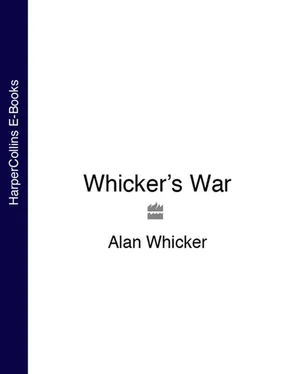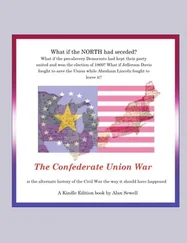I remain convinced the reason I walked through OCTU with high marks and emerged as a teenage officer was due, not to conscientious study or aptitude, not to all that square-bashing, sweat and effort – but to one lucky Saturday night punch that connected.
Since my Father’s family came from Devon I was commissioned into ‘The Bloody Eleventh’ of the Line, the Devonshire Regiment. Feeling chipper and dashing in my service dress and gleaming Sam Browne, with that hard-won Pip on my shoulder, I’d stride through Mayfair, acknowledge a few salutes and be perfectly happy with my lot. Being shot was for another day.
Uplifted, I left my first-class Great Western carriage and reported for duty to the regimental Adjutant at Plymouth’s Crownhill Barracks. To my disappointment he was not a fearsome Regular polo player with rows of brave ribbons, but a burbling beery ex-Territorial from Fleet Street, of all places. I felt he was the wrong sort of High Priest, playing in the wrong game. There may be nothing lower than a Second Lieutenant, but every volunteer needs a dashing role model.
However when I returned to my quarters, a batman had unpacked my kit, laid out the service dress, repolished buttons and Sam Browne, and run my bath. I had recently been living the roles of bored Lance Corporal, then weary Cadet. Now I had become overnight an Officer and a Gentleman. A little glory, with no visible risk. The war was never as good as that again, ever.
I savoured the moment. It seemed that running up all those mountains had been time well spent – despite the current prospect, as an infantry platoon commander, of the Army’s shortest lifespan. I went for a snifter with the other chaps in the Mess, as we always say.
Soon after those triumphant moments in Plymouth, I prepared to pay the piper: Movement orders came through and I was suddenly a reinforcement, reporting to an unknown regiment in training at a remote place called Alloa. This had an undulating hula-hula lilt about it, like a magical posting to some romantic Polynesian isle. Could Whicker’s Luck be holding?
No, it could not. Alloa turned out to be, not an exotic South Seas greeting but a grey and mournful Scottish industrial town in Clackmannanshire. The Battalion of East Surreys billeted in its sad empty houses was route-marched through the rain around Stirling. The Mess was a damp pub, the senior officers Regular wafflers, the NCOs morose, the men despairing. As one of the newer Crusaders, I found the atmosphere unjolly.
Depression grew. The solitary bright spot was my mandatory embarkation leave, after which our troopship would sail out across the Irish Sea to face the mines and submarines that were decimating Britain’s remaining fleets and then, if we survived, the German army. We would be last seen steaming, it was believed, to Africa.
Before leaving Home and Mother for ever I was anxious to get a little mileage on the social scene out of my brand new service dress and lone pip. The journey back to London in a dark freezing wartime train offered standard depression, but next day came a welcome invitation to a farewell lunch at 67 Lombard Street given for me by an uncle, a City banker with Glyn Mills, to celebrate my elevation to elegant cannon-fodder. It was a pleasant meal. It also probably saved my life.
The other guest happened to be a Whitehall Warrior, a daunting blaze of red tabs and crowns and ribbons from the War Office who, over the port and Stilton, mentioned that one of his brand new units was looking for a young officer with news sense to join the Army’s first properly-organized combat Film Unit which was about to leave for some hazardous secret landing in enemy territory. Could I, he wondered, could I direct sergeant-cameramen in battle? There would be a lot of action.
It took me a nanosecond to volunteer for this unknown experience, anywhere at any time. It sounded like adventurous suicide – but it was stylish.
I returned to poor grey Alloa and its sullen soldiers, clutching a glimmer of hope amid their mass dejection. Next day the War Office offered me the posting. It was a decisive redirection, and an escape. I would be going into action before the East Surreys, but not with them. If I had to go and fight an enemy, I did at least want to get along with my own side.
A LONG LIFE WAS NOT IN THE SCRIPT…
So Whicker’s War started prosaically in a black cab driving through empty streets towards the Hotel Great Central at Marylebone Station, then the London District Transit Camp. It was the first of many millions of travel miles around Whicker’s World, though this time I was heading hopefully into the unknown and wondering what the hell was about to hit me.
At the reception desk I asked for AFPU. The corporal clerk checked his long list. ‘Army Field Punishment Unit, Sir?’
‘No,’ I said, doubtfully. Surely the General had not tricked me? ‘At least – I hope not.’
All was well. AFPU was assembling and preparing for embarkation. As far as I was concerned, there was no hurry – the West End would do fine for a few weeks, or more. Then we’d see about Africa or wherever.
One of my first Army Film and Photo Unit duties seemed close enough to Field Punishment. As the newest, youngest and greenest officer, I was instructed to give the whole unit an illustrated lecture on venereal disease and the dangers of illicit sex in foreign climes, a subject on which I was not then fully informed. The order that someone had to lay an Awful Warning on the Unit before it went to war had come amid masses of bumf from Headquarters and been passed down the line to be side-stepped with a hearty laugh by every available officer … before stopping at the least significant.
A callow youth, but aging fast, I faced that parade of world-weary 35-year-old family men who seemed like knowing and experienced uncles. There were a few grizzled Regulars who at various postings around the world had obviously looked into the whole subject quite closely. It was not an easy moment. However, I gave them the benefit of my inexperience and they were most tolerant, listening as though I was telling them something new. Well, it was new to me.
The Great Central was plush and comfortable, after field kitchens and empty billets in Cumbria. I passed some mornings drilling our assorted band of cameramen in Dorset Square, NW1. Fresh from the ministrations and ferocity of a Guards RSM at OCTU, I was quite shocked by their casual and unmilitary bearing – and they didn’t much care for mine, either. However I shouted a lot, and they fell into some sort of shape.
I was told to take them on a route march. I always found this a boring and pointless exercise so led them, not round and round Regents Park, but through such wartime bright lights as remained in the West End. Down Edgware Road to Marble Arch, where traffic waited while we crossed haughtily into Park Lane, then left for Piccadilly, up the hill, past the Ritz and left again into Bond Street. Such a route brightened the tedium of the march for us all; at least we could look into the shop windows as we strode past.
It would have been ideal for Christmas shopping, had the shops anything to sell and my Army pay been better than a few shillings a week. We were doubtless contravening a stack of regulations but even wartime Oxford Street was more visually entertaining than the country lanes around Dolgellau.
We were commanded by Major Hugh St Clair Stewart, a large gawky and humorous man who after the war, returned, quite suitably, to Pinewood to direct Morecambe and Wise and Norman Wisdom film comedies. Some of our sergeants were professional cameramen, others bus drivers and insurance clerks, salesmen and theatrical agents. All had been through Army basic training. ‘I’d rather have soldiers being cameramen,’ said Major Stewart, ‘than cameramen trying to be soldiers, because one day they may have to put down their cameras and pick up rifles.’ So they did.
Читать дальше












